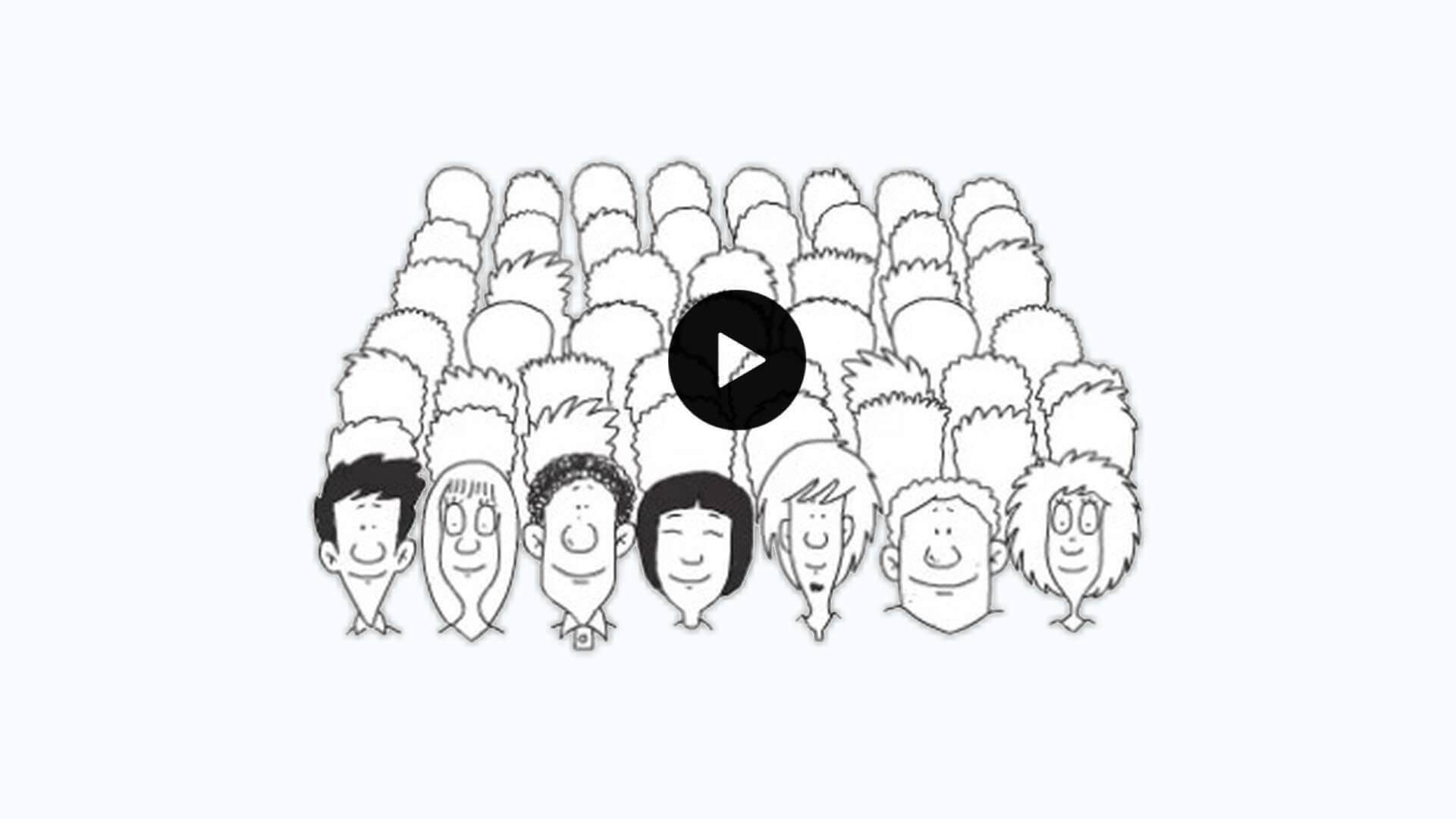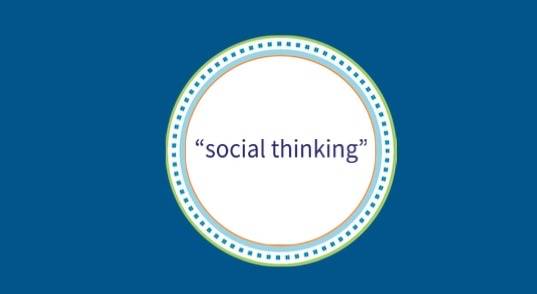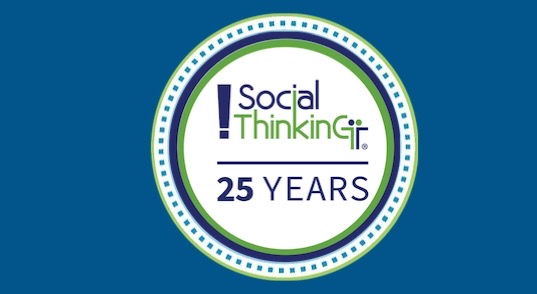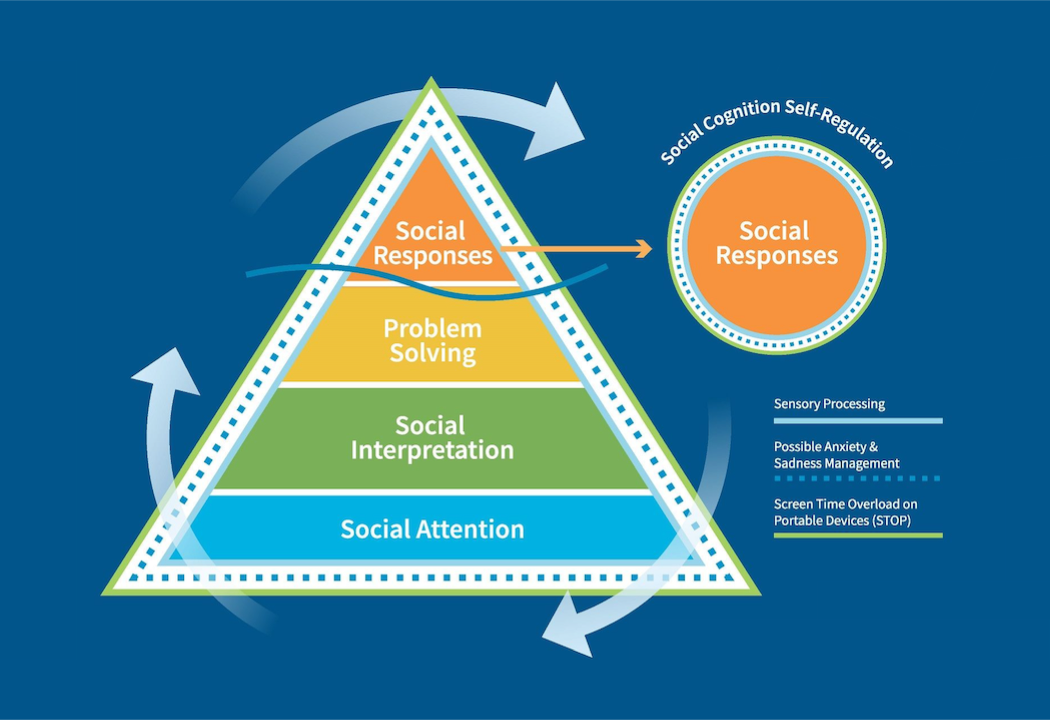
There are 3 distinct yet overlapping definitions:
We have a lot of information to share. Here are three ways to understand how we use the words "social thinking":
- The Term
- The Business
- The Methodology
Watch the video or browse below to learn more!
Teaching social competencies—more than social skills
The foundation of our work provides interventionists (teachers, speech language pathologists, therapists, clinicians, parents) and social emotional learners with frameworks, tools, skills and a shared language to improve social competencies—more than just social skills.
Our goal is to help people learn explicitly how to engage in social information processing; how to attend, interpret, problem solve and respond in any situation—the thinking and doing skills that will aid them in becoming increasingly successful in the social world throughout their lives.
At some point we all struggle in social situations. Engaging in a social emotional thinking/feeling based process can be difficult at times for everyone in the social world. Our role as interventionists is to help motivate social emotional learners to "do the work" and explore how we all share social expectations, thoughts, feelings, make mistakes and try again as we learn to navigate our way toward our social goals. The practical nature of our teaching and the concrete way we explain social concepts helps engage people in social emotional learning not only about themselves but about others.

Evidence-based and evidence-informed strategies for interventionists
The social world is an enormous and complex place. You, the interventionist, must first gain your own understanding of how the social world works before teaching social emotional learners about it. The Social Thinking Methodology relies on both evidence-based and evidence-informed information to teach social learners about the how the social world works. We also believe in the importance of taking time to understand the social learner from their unique perspective. We consider how the individual learns best, what they value, and their social goals. It is only after spending time understanding the social world and the social learner that we begin to tackle strategies for teaching how to work (navigate to regulate) in the social world. The Social Thinking Methodology has specific components to teach about these aspects through free articles, products, conferences, livestreams, on-demand courses, and free webinars.

Evidence-based and evidence-informed strategies for social emotional learners
Social emotional learners are individuals ranging from ages four through adulthood who are learning about how the social world works while also learning how to work (navigate to regulate) in the social world (within themselves and among others). We are all social emotional learners. Over the course of our lives, we cycle through different phases of gathering knowledge about how the social world works and then use that information to work (navigate to regulate) in the social world. The Social Thinking Methodology relies on both evidence-based and evidence-informed information to teach social learners about the how the social world works and strategies for navigating and regulating in it. Being a social emotional learner is a lifelong process.
This has been a game changer for helping general education teachers. We have been using the Social Thinking Methodology with our students, they are making friends, are more successful academically, and generally happier in all they do. Thank you! - Jennifer, Special Education Teacher











